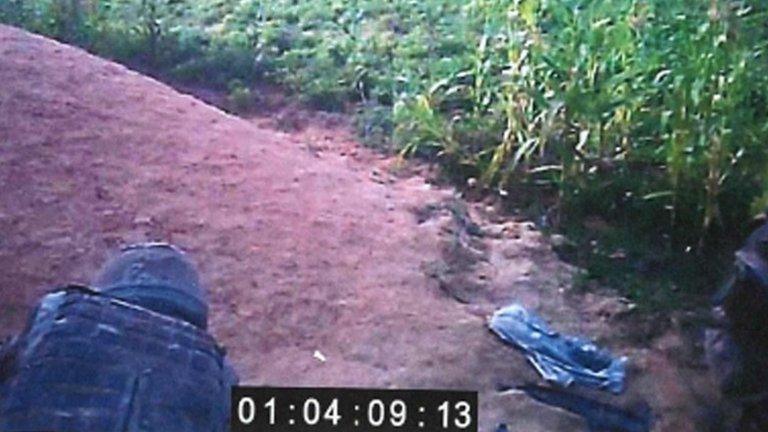Calls to review murder sentence of Sergeant Alexander Blackman
- Published
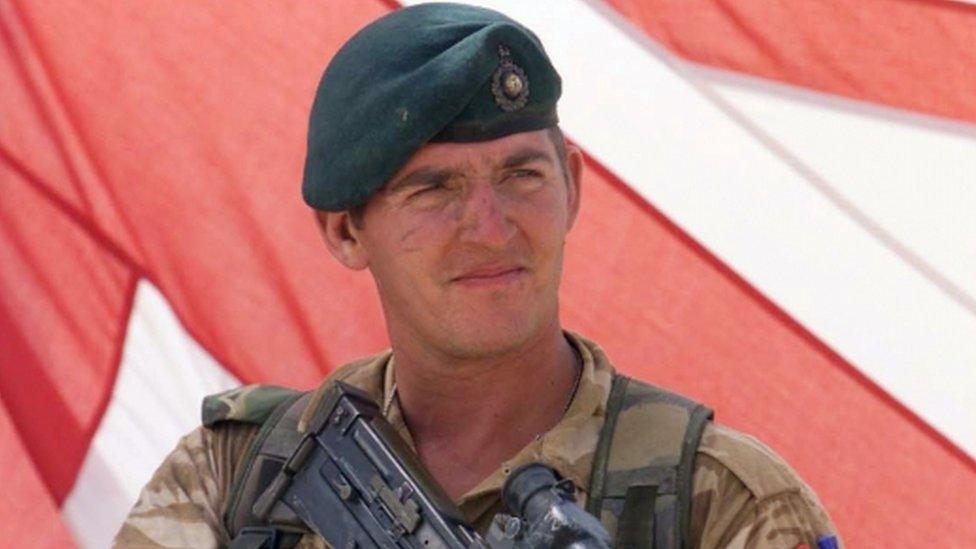
Sergeant Alexander Blackman was convicted of murder at a court martial in 2013
A campaign has been launched to review the case of a Royal Marine jailed for life for killing a Taliban insurgent.
Sergeant Alexander Blackman was convicted of murdering the injured captive in Afghanistan but his supporters say it was manslaughter.
Author and campaigner Frederick Forsyth said the court martial that convicted Blackman "stank from top to bottom".
Joshua Rozenberg, who presents Radio 4's Law in Action, said it would be "an uphill struggle" to reopen the case.
A new legal team - led by Jonathan Goldberg QC - is seeking a review, arguing that he should have been convicted of the lesser charge of manslaughter.
Blackman, of Taunton, Somerset, was convicted in 2013 and lost an appeal in May last year, but his 10-year minimum term was reduced to eight years.
'Battle fatigue'
Blackman's wife Claire told the Daily Mail, external: "The fact that he is now serving a life sentence for killing a dying Taliban insurgent is just wrong, this was war.
"Had the roles been reversed that man would have tortured my husband before killing him.
"We will not give up the fight to bring Al home."
Mr Forsyth, who is leading the campaign, told BBC Radio 4's Today programme that the evidence that Blackman was "nearly feral with exhaustion" was not produced at court.
"There is a very, very clear case that you can get a fighting man so tired, so consumed by battle fatigue and combat stress that he is hardly even thinking straight and there is provision in British law for that," he said.
He claimed that at the end of Blackman's trial, all seven members of the jury "put their caps on and saluted him."
"Honourable men do not salute a perjurer and a murderer", he said.
Mr Forsyth said the verdict had been a five to two majority, but Mr Rozenberg said the argument that it was unfair to have a majority verdict was dismissed so "it would be hard to overturn that".
Campaigners hope the Criminal Cases Review Commission, which investigates suspected miscarriages of justice, will look at Blackman's case.
Commission spokeswoman Sally Berlin said the organisation has yet to receive an application from the campaigners or legal team, but if one is submitted it will consider the case.
Extract from helmet camera recording of incident in Helmand, Afghanistan
Mr Goldberg said there are three routes to a manslaughter verdict including loss of control, unlawful act manslaughter and diminished responsibility and he said all could be argued.
Mr Goldberg said Blackman suffered from battlefield stress syndrome and this was not presented to "any of the previous courts" as grounds for reducing murder to manslaughter "as we think it should have been".
He said if Blackman had been convicted of manslaughter he may not have been jailed.
'A scapegoat'
The killing, on 15 September 2011, took place after a patrol base in Helmand province came under fire from two insurgents.
One of the attackers was seriously injured by gunfire from an Apache helicopter sent to provide air support and the marines found him in a field.
Footage from another marine's helmet-mounted camera showed Blackman shooting the Afghan prisoner in the chest with a 9mm pistol.
Blackman told him: "There you are. Shuffle off this mortal coil."
The court martial board in Bulford, Wiltshire, found Blackman guilty of murdering the insurgent. Two other marines were acquitted.
It was the first time a member of the British armed forces had faced a murder charge in relation to the conflict in Afghanistan, which began in 2001.
Blackman was also "dismissed with disgrace" from the Royal Marines. He had served with distinction for 15 years, including tours of Iraq, Afghanistan and Northern Ireland.
Blackman had denied murder, claiming he believed the victim was already dead and that he was taking his anger out on the corpse.
A Ministry of Defence spokesperson said: "We respect the authority and decision of the court."
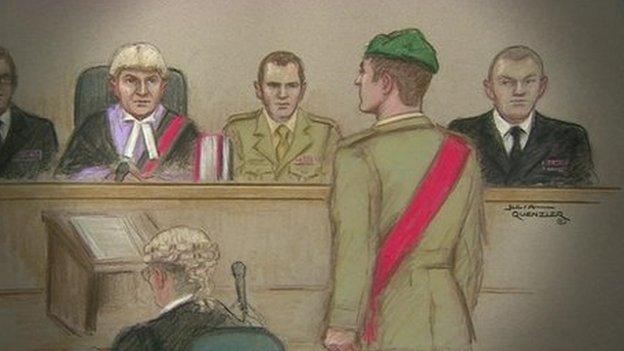
Blackman's 10-year minimum term was reduced to eight years on appeal
The Mail claims crucial evidence was deliberately withheld from the original court martial and says it will reveal "extraordinary and compelling new evidence" in the "coming days".
The paper reports that it has seen confidential papers which claim panel members who convicted Blackman were "deliberately kept in the dark".
The paper claims the court martial was never given evidence of alleged operational failings by Blackman's commanders, which meant his troop was "isolated, under-manned, under-resourced and under daily Taliban assault".
All of this was "directly affecting his state of mind at the time of the shooting", which led to Blackman not receiving a fair trial, it is claimed.
Blackman, 41, told the Mail: "I made a split-second mistake, but I had been sent to a brutal battlefield to fight a war for my country.
"At the end of my trial, the establishment lined up to portray me as evil, because it suited them… to show the world how politically correct we are.
"I have been made a scapegoat."
Blackman's case is due to be discussed in the House of Commons on 16 September.
- Published16 January 2015
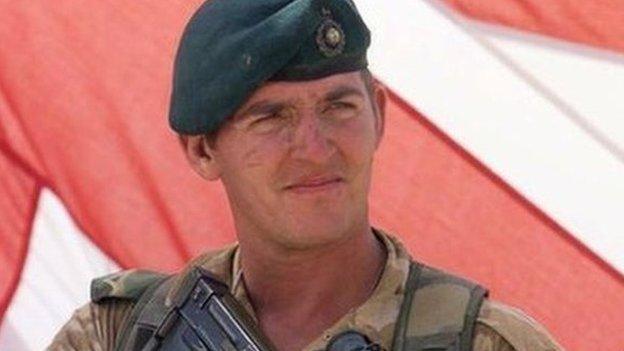
- Published22 May 2014

- Published17 December 2013
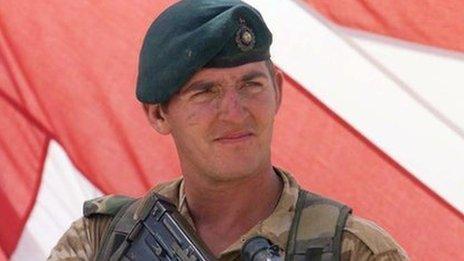
- Published14 December 2013

- Published19 December 2013
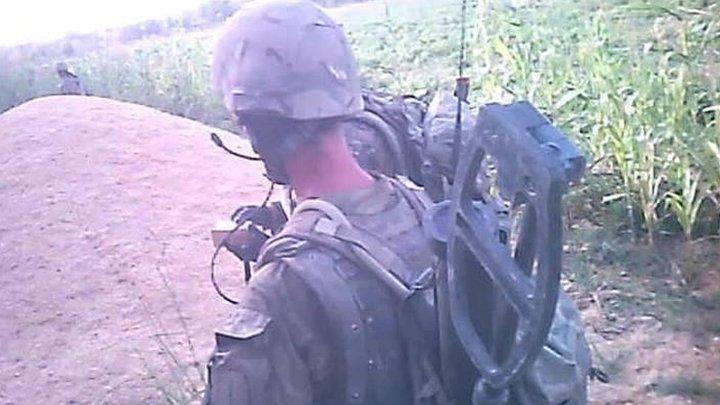
- Published6 December 2013

- Published7 November 2013
